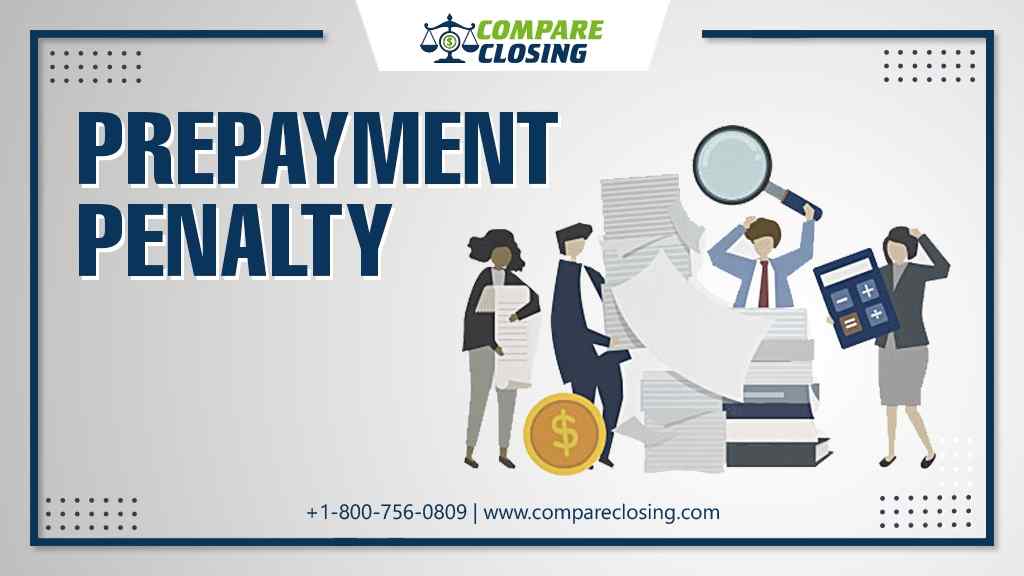Table of Contents
- What Are Netting Escrows & How Does It Work?: The Best Guide - January 2, 2024
- The Secret About Prescriptive Easement: Top Guide 1 Must Know - December 4, 2023
- About Home Equity Loans In Texas And How Can One Obtain It - November 27, 2023
Introduction to Prepayment Penalty
When you take a mortgage the lender expects you to pay the loan within the tenure with the interest that is charged on the loan so that the lender could make a benefit.
However, what happens if you want to pay off your mortgage early? Well in some cases if you have signed for a mortgage with prepayment penalties, you might be charged with some amount to close your loan early.
In this post, we will understand what is a prepayment penalty in detail.
What is a Prepayment Penalty?
A prepayment penalty is a provision of some loan contracts that states that in the event you pay off your mortgage loan entirely before a specific time, you will have to pay a fee.
Mortgage prepayment penalties are usually expressed as a percentage of your outstanding balance at the time of pre-payment or a specified number of months of interest.
Usually, the mortgage prepayment penalty disappears over time.
While back a lot of primary residence mortgages had a prepayment penalty which means that if you pay off your mortgage or sell the home within the first few years, then there would be a penalty that you would have to pay to the lender for ending the mortgage so quickly.
How does a Prepayment Penalty Work?
A typical prepayment penalty is three years, and it goes in a descending order payment schedule.
If you were to close the mortgage in the first year after closing, you would have to pay three percent of the loan amount.
If you were to end the mortgage in year two, you would owe two percent of the loan amount. And if you pay off the mortgage or sell the home in three years you would be charged one percent of the mortgage balance.
That could get fairly expensive if you are not staying in a home for at least three years or if you decided to refinance within the first three years.
Types of Prepayment Penalty
When it comes to mortgage prepayment penalties there are only two types.
If you have signed a mortgage with a “hard” prepayment penalty, it means you would have to pay the prepayment penalty if you refinance or sell the home within the mentioned time in the contract.
And if you have signed a mortgage with a “soft” prepayment penalty, it means you have to pay the penalty only if you refinance your mortgage within the given time mentioned in the contract.
Prepayment Penalty Example
Let us consider a borrower who got a mortgage with a prepayment penalty clause for three years, and he wants to sell the home in the third year with a loan balance of $350,000.
In order to be able to sell the home, the borrower has to pay 1% of the loan balance which sums to $3500.
Since pre-payment penalties can be an additional cost to refinancing or selling the home, you may need to check your mortgage closing disclosure and ensure that you are completely aware of this clause.
Why do Lenders Charge Prepayment Penalty?
When a mortgage is given by a lender it is understood that the lender will make a profit on the loan throughout the tenure of the loan in form of interest.
The prepayment penalties are imposed on a mortgage if the borrower decides to pay off the mortgage or refinance before the lender has made enough profit on the loan.
The pre-payment penalties may vary from lender to lender. There are many lenders who don’t charge prepayment penalty mortgage at all, however, there are few who might charge if you pre-pay your loan.
It is best that you pre-actively ask your lender about these prepayment penalties. These lenders are bound to disclose any prepayment penalties in their final disclosure.
They cannot impose a prepayment penalty without letting the borrower know.
Conclusion
The best way to avoid prepayment penalty on your mortgage is to read the closing disclosure will all the fine prints.
You don’t want to regret signing the documents and later on realize that you have to pay a hefty amount if you want to sell your home or refinance your mortgage.
If your lender is implicating the prepayment penalty on your mortgage you can always negotiate to get it removed.
You can also check quotes from multiple lenders and choose the lender that has the lowest prepayment penalties or none at all.
Amanda Byford
Amanda Byford has bought and sold many houses in the past fifteen years and is actively managing an income property portfolio consisting of multi-family properties. During the buying and selling of these properties, she has gone through several different mortgage loan transactions. This experience and knowledge have helped her develop an avenue to guide consumers to their best available option by comparing lenders through the Compare Closing business.





